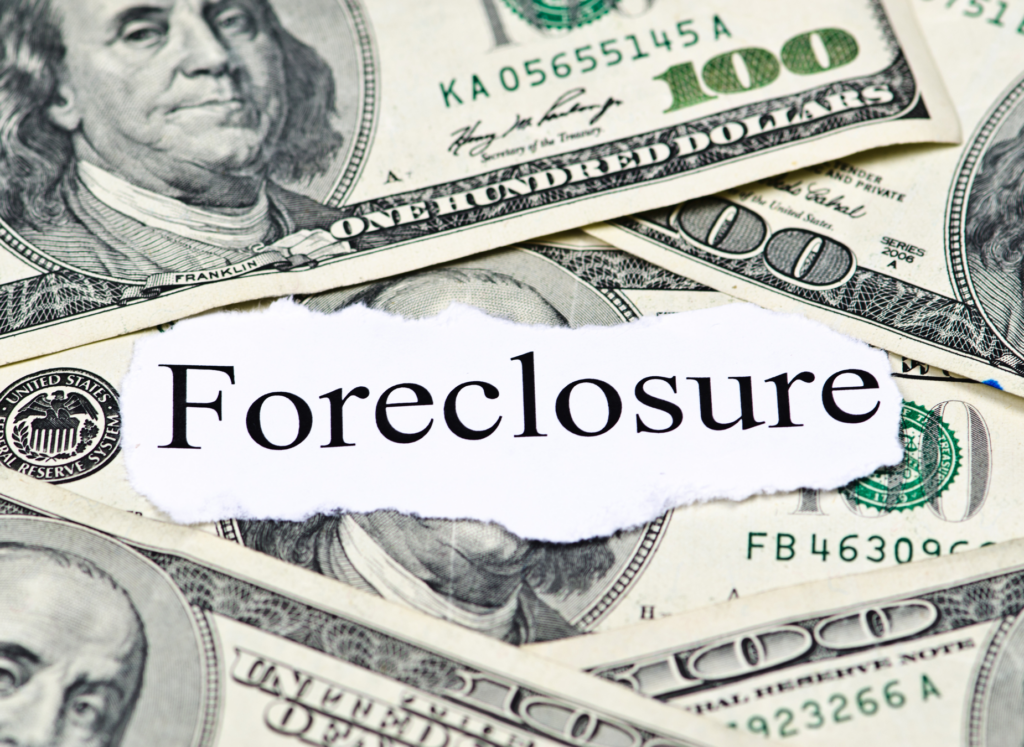
How Can You Save on Closing Costs in Texas?
What Are the Common Closing Costs in Texas?
When buying a home in Texas, closing costs include various fees and expenses. These expenses cover lender charges, appraisal, title insurance, and attorney fees. You might also pay for recording and transfer taxes or items like homeowner’s insurance and property taxes. Typically, closing costs in Texas are between 2% and 5% of the home’s purchase price. It’s wise to review each item on your closing statement and ask your lender to explain any unclear or unnecessary fees.
How Can Negotiation Help Reduce Costs?

Negotiation is a valuable way to reduce closing costs. To start, compare offers from different lenders to find the best deal. Many lenders might waive specific fees or offer credits if you negotiate well. You can also ask the seller if they can cover some of the closing costs in the sales agreement. Good negotiation tactics can lower your financial burden when closing on a home.
Is It Possible to Minimize Costs Through Timing?
You can save money by strategically timing your closing. Signing during certain months or days can affect costs related to interest rates and other fees. For example, closing at the end of the month may cut down the prepaid interest you owe. Stay aware of market conditions and economic factors since they might offer a better time to sign. Watching these aspects can help you make smart choices to minimize your closing expenses.
Exploring Financial Assistance Options for Texan Buyers
Buying a home is a significant milestone, often accompanied by financial challenges, especially related to closing costs. Luckily, Texas offers several programs and incentives to help buyers manage these expenses.
What Programs Offer Closing Cost Assistance?
If you want to handle closing costs effectively, look into both government and private programs:
- Government Programs: Texas has multiple state-run programs that provide closing cost assistance. These are often part of housing finance initiatives to make homeownership more accessible. The Texas Department of Housing and Community Affairs (TDHCA) offers rebates or grants to help reduce these costs.
- Private Programs: Many private organizations also offer opportunities for closing cost assistance. These programs vary, so comparing what different organizations offer is useful. Ask your real estate professional for advice on private programs that fit your needs.
Exploring public and private options can present different benefits depending on your circumstances.
How Can State Incentives Benefit First-Time Homebuyers?

State incentives can lower the financial burden for first-time homebuyers in Texas. Here’s how:
- Texas-Specific Offers: The state provides various incentives for first-time buyers, such as assistance with down payments and favorable interest rates. These programs aim to make owning a home more attainable.
- Tax Breaks: Potential tax breaks are a key advantage of these incentives. First-time buyers can benefit from deductions and credits that lower property taxes, offering long-term savings.
First-time buyers can use these state incentives to cut initial costs and get better mortgage terms. Research available options and consider talking to a tax professional to get the most out of these benefits.
Are There Special Loan Products with Reduced Closing Costs?
Specific loan products are designed to lower closing costs, offering extra help to new homeowners:
- FHA Loans: Federal Housing Administration (FHA) loans are popular for buyers with small down payments. They often have reduced closing costs.
- VA Loans: Veterans or active-duty service members can access VA loans with benefits like lowered or waived closing costs.
- Special Loans: Various mortgage products cater to first-time buyers with attractive terms like fixed rates and refinancing options.
These loan products can help reduce upfront expenses. It’s important to assess each option and talk to a mortgage advisor to find which product best suits your financial needs and homeownership goals.
Knowing your options is key when exploring closing cost assistance programs, state incentives, or special loan products. At A Cash Home Buyer, we believe informed decisions lead to successful homeownership. Contact us to learn more about how these options can work for you.
Seeking Professional Help to Cut Down Closing Costs
Can a Mortgage Broker Assist in Lowering Costs?

Using a mortgage broker can be a smart way to reduce your closing costs. Brokers act as middlemen between lenders and borrowers and can help you save on your loan.
- Access to Many Lenders: Mortgage brokers work with various lenders, which can help you find lower rates or special discounts.
- Negotiating Closing Costs: Brokers can negotiate with lenders to lower fees. This might include finding closing cost credits specific to Texas that you might miss otherwise.
- Texas Mortgage Discounts: Brokers often know about hidden discounts or incentives that can reduce your costs.
By using the skills and resources of a mortgage broker, you can find more ways to save on your loan.
Are There Legal Fees You Can Avoid or Reduce?
Legal fees can make up a large part of closing costs, but there are ways to lower them. A real estate lawyer in Texas can help you find money-saving strategies.
- Reviewing Legal Fees: Lawyers who know Texas real estate can check your closing documents to ensure you only pay for necessary services. They can spot unnecessary charges or errors that could increase costs.
- Title Search Efficiency: Doing a thorough title search and negotiating related fees can lead to savings. Lawyers can help make this process efficient and negotiate better rates with title companies.
- Closing Cost Negotiation: Having a knowledgeable real estate lawyer on your side means you have someone to negotiate and reduce legal and administrative fees during closing.
By managing legal expenses carefully, you can reduce closing costs when buying a home.
In short, getting professional help can save a lot when closing on a home in Texas. Whether through a real estate expert’s ability to negotiate, a mortgage broker’s network, or a lawyer’s expertise, you can lower your expenses.
Utilizing Seller Concessions and Credits Effectively
Every penny counts when buying a home. Knowing how seller contributions affect costs is key to making a deal that fits your budget.
How Can Seller Contributions Impact Your Bottom Line?

Seller concessions are payments made by the seller to help cover your closing costs. These might include inspection fees, property taxes, or homeowner association dues in Texas. Seller concessions can lower your initial expenses, making it easier to afford your new home.
- Closing cost reduction: These concessions can free up money for other needs, like furnishing your home or saving for future costs.
- Negotiation power: Learning to negotiate seller concessions can save you a lot. For example, pointing out necessary repairs with your real estate agent can strengthen your negotiation position.
What Are Common Seller Credit Strategies?
In real estate, specific strategies can help you make the most out of seller credits.
- Buyer closing cost strategies in Texas: Buyers can request sellers to pay specific closing costs, reducing what they owe.
- Effective closing strategy Texas: Discuss necessary repairs during negotiations to use them as leverage for securing seller credits.
These strategies can help streamline the negotiation process and minimize upfront costs, aiding in better financial planning.
Is It Possible to Roll Costs into Your Loan?

Homebuyers can consider rolling their closing costs into their mortgage, known as a No Closing Cost Mortgage. Though this might raise the interest rate, it can help lower immediate expenses.
- No closing cost mortgage Texas: This option lets you spread costs over time, adding more to your monthly payment.
- Zero closing cost options Texas: Understand how this affects long-term payments, balancing short-term benefits with potential interest increases.
Exploring these loan options might be wise if you’re looking to keep initial costs low. Consult a mortgage advisor to see how this choice fits your financial picture.
By smartly using seller concessions and credits, you can improve your home-buying experience and align it with your financial goals.
Evaluating Alternative Financing to Avoid Closing Costs
What Are the Pros and Cons of No-Closing-Cost Mortgages?
A no-closing-cost mortgage has both benefits and drawbacks.
Pros:
- Immediate Savings: You avoid paying closing costs upfront, which is helpful if you’re short on cash.
- More straightforward Budgeting: With fewer expenses, you can use your money for other needs.
Cons:
- Higher Interest Rate: These mortgages often have higher interest rates, meaning you’ll pay more over the loan’s term.
- Long-term Impacts: The higher rate leads to more significant payments overall, which affects your finances.
- Mortgage Broker Fees: You might still face some fees, like higher loan origination costs, as brokers cover unpaid upfront expenses.
A no-closing-cost mortgage can help if you need to save cash initially, but think about how the higher interest rate will affect your budget over time. Contact your mortgage broker to see if this option matches your financial goals.
How Can Refinancing Options Lead to Savings?
Refinancing your mortgage might reduce your long-term financial burden. Here’s how:

- Lower Interest Rates: Refinancing when rates are lower than your original loan can reduce your interest rate. This is true in places like Texas, where market changes can offer savings.
- Reduced Monthly Payments: Lower rates usually mean smaller monthly payments, freeing up cash for other uses.
- Shorten Loan Term: Choosing a shorter term could reduce total interest payments, though your monthly payments might rise.
- Avoiding High Costs: A smart refinance can avoid costs tied to an older, higher-rate home loan.
While refinancing can save money, consider the costs involved, like lender fees and prepayment penalties. Talking with a lender can help you understand these factors and find the best refinancing option.
Is There a Way to Offset Closing Costs with Interest Rates?
You can sometimes offset closing costs by negotiating interest rates with lenders. Here’s how this trade-off works:
- Negotiation Tactics: Work with your lender to adjust the interest rate in exchange for covering most or all closing costs. This reduces the immediate financial burden.
- Understand the Fees: Know what fees are included in this deal and what might still need payment.
- Long-term Considerations: While this strategy saves money initially, a higher rate means paying more later.
- Evaluate Savings: Calculate potential savings from offsetting costs with a slight rate increase to see if it’s worthwhile. In Texas, where real estate trends vary, this can influence your choice.
Before deciding, discuss these strategies with a trusted mortgage advisor for insights specific to your situation. This helps you make informed decisions that align with your long-term financial health.
FAQs:
How can I reduce closing costs when buying a home in Texas?
To lower closing costs in Texas, try negotiating seller concessions, comparing rates from multiple lenders, or choosing a zero-closing-cost mortgage. You can also check for first-time homebuyer programs that may offer financial help.
Are there strategies to avoid paying high closing costs on a Texas property?
Work with your realtor to seek seller contributions, explore lender credits, and examine discount points to reduce fees. A solid negotiation strategy can significantly cut these costs.
What common expenses are included in Texas closing costs, and how can they be managed?
Texas closing costs include appraisal fees, title insurance, and escrow charges. You can manage these by requesting a Loan Estimate from your lender and shopping around for better offers from other providers.
How does the choice of lender affect closing costs in Texas?
Lenders have different fee structures, so compare quotes. A lender with competitive mortgage rates may also offer better closing cost terms. Use online calculators to estimate potential expenses efficiently.
Can refinancing help in avoiding closing costs in Texas?
Refinancing might lower closing costs if the new loan offers better rates or terms. Calculate the break-even point to see if refinancing is financially worthwhile, considering any extra fees.
Is it possible to buy a home in Texas without any closing costs?
It is rare to eliminate closing costs, but strategies like using lender credits or rolling costs into the loan balance can minimize them. Negotiating with the seller to cover some costs can be effective, especially in a buyer’s market.
What is the role of a Texas real estate attorney in managing closing costs?
A real estate attorney can guide you through legal documentation, ensuring no unnecessary fees are added during closing. Their expertise is valuable in complex transactions or when negotiating terms to meet your financial goals.
What tips can you share for first-time homebuyers in Texas to handle closing costs effectively?
First-time homebuyers should budget early for these expenses, research state-specific incentives, and use homebuyer education courses. Partnering with trusted mortgage advisors can provide insights into effectively reducing these costs.
Key Insights
- Explore strategies like Texas seller concessions and zero closing cost options to learn how to avoid closing costs in Texas.
- Get expert advice on avoiding costs when buying a home, including tips for reducing buyer costs, saving on real estate transaction fees, and lowering closing costs in Texas.
- Discover how to negotiate closing costs effectively with your realtor and mortgage broker for buyers and sellers in Southeast Texas.
- Understand the impact of expenses such as insurance premiums, escrow, and utility bills during home-buying.
- Find out how first-time homebuyers can cut average closing costs for their new homes. Texas tips and Texas property buying tips can help you cut average closing costs for your new home.
- Gain insights into smart lending practices by comparing multiple lenders and exploring loan applications to lower your mortgage rates and manage higher interest rates efficiently.
- Explore resources for effective wealth management, including strategies for tax breaks and credits when purchasing a for sale by owner property.
- Learn about the role of home warranties, such as American Home Shield options, and how they can offset homeownership expenses in Texas.
- Benefit from comprehensive Texas real estate advice, covering escrow processes, attorney fees, and appraisal costs.
- Use Texas closing cost guidance to make informed financial decisions, ensuring a budget-friendly move into your new home.
This information applies to Texas and its cities, including Austin, Houston, El Paso, and more. Please call us at (214) 617-1510 for assistance or if you have questions. You can also visit our website at A Cash Home Buyer for more details.
Sell Your Texas Home This Week!
Other Blog Articles You May Enjoy





